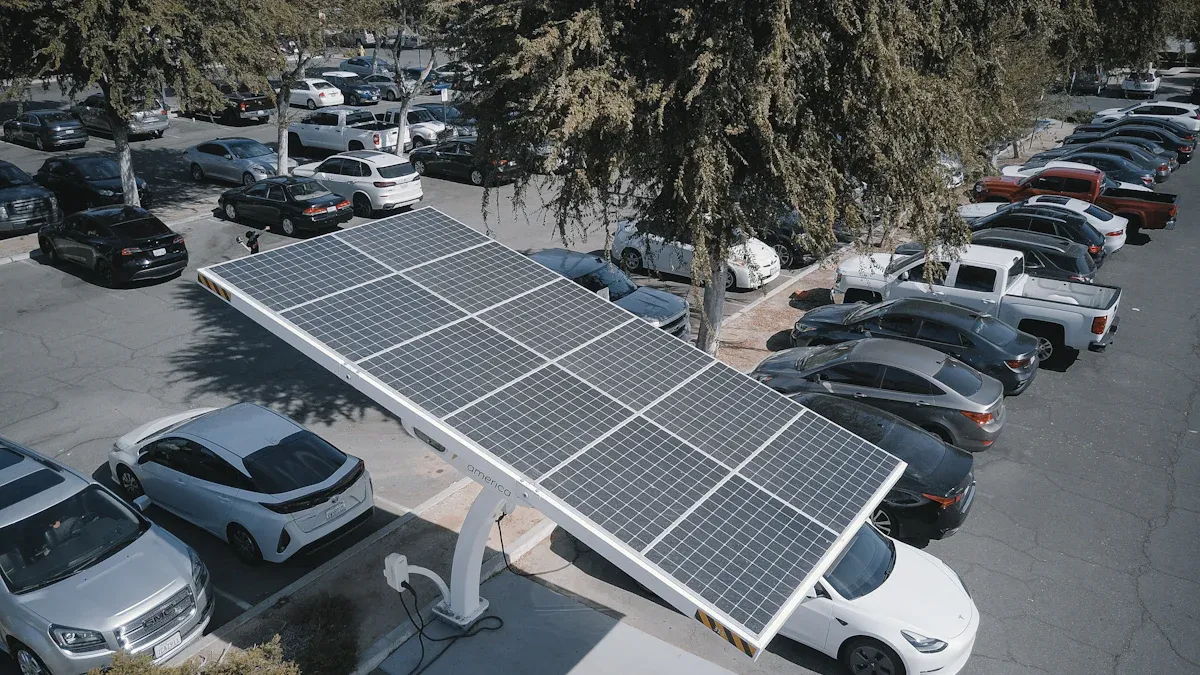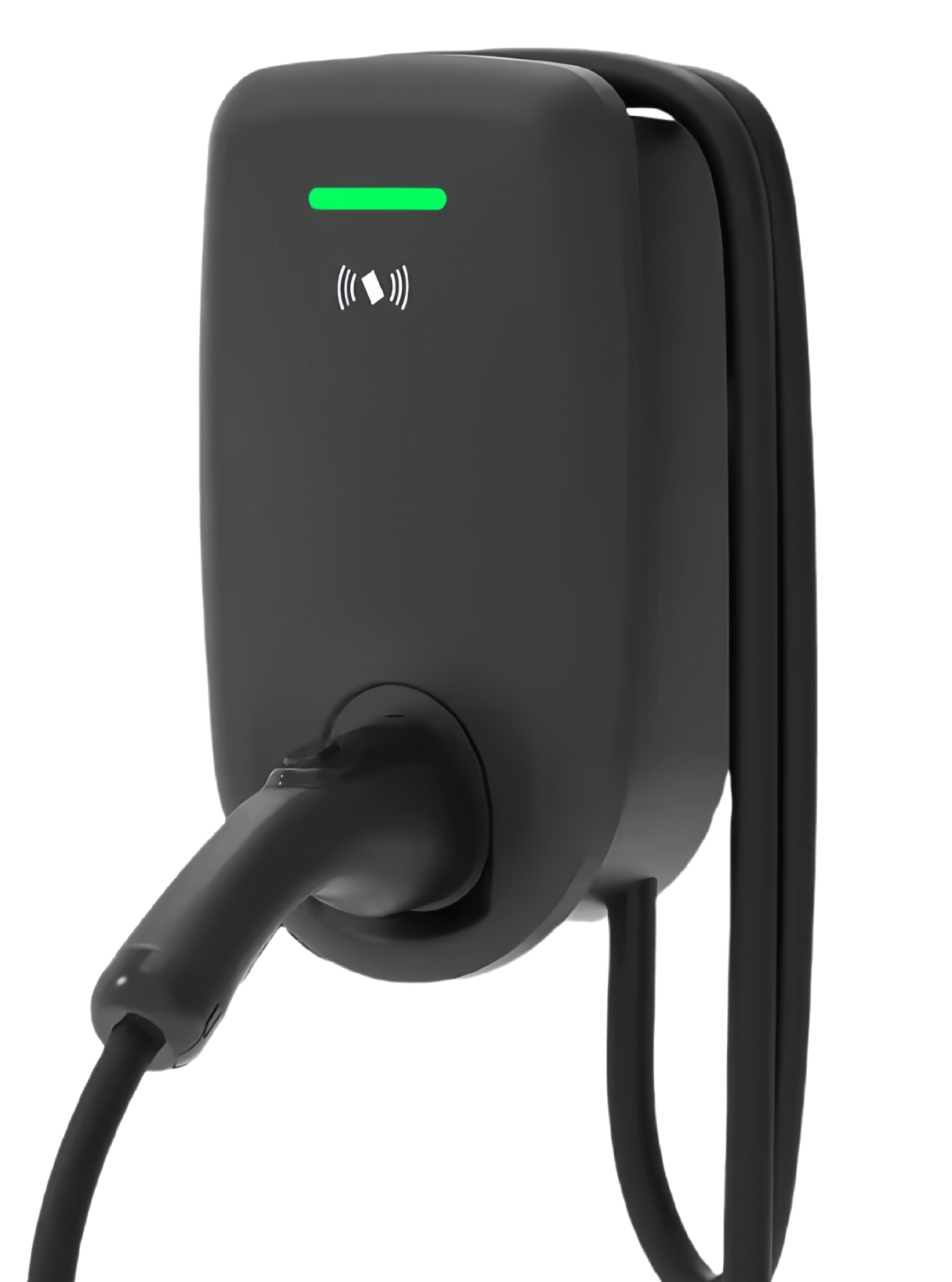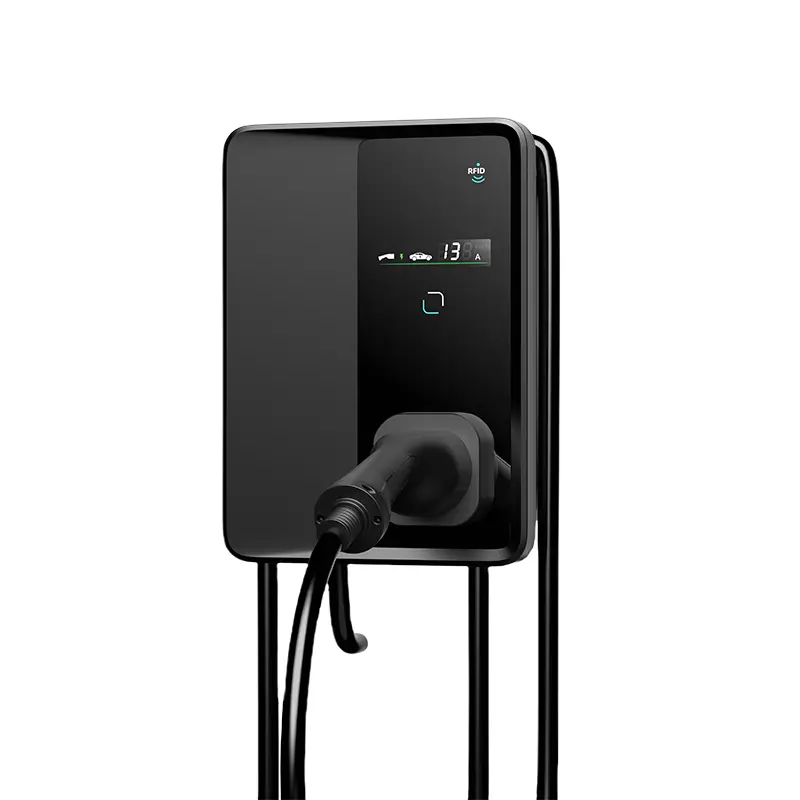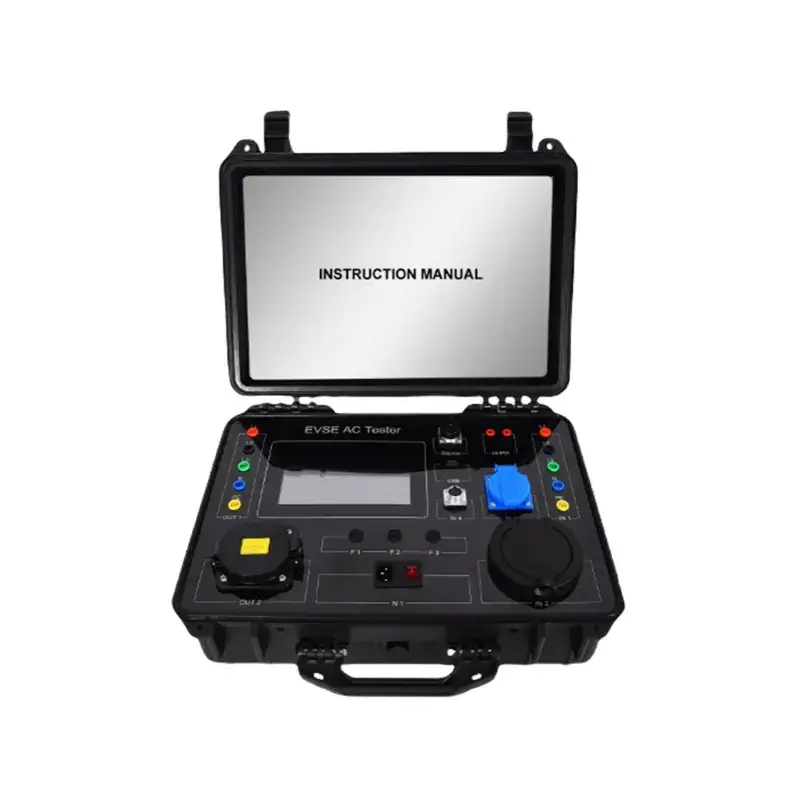Does finding the right EV Charging Contractor feel hard? Many business owners want easy installations and happy customers. Each company has its own goals, so charging needs are not the same. Before starting, they should ask what is most important for their place and customers. Picking the right EV charging contractor now can help the business grow and keep customers coming back.
Project Requirements for EV Charging Contractor
Every business needs something different for commercial EV charging stations. Before talking to a EV charging contractor, a company should write down what it wants. This helps stop problems and keeps things going right.
Electric Vehicle Charging Station Needs
Number and Type of Chargers
A business should ask, “How many chargers do we need?” Some only want a few. Others need a lot. The kind of charger is important, too. Level 2 chargers are good for most stores and offices. Fast chargers are better for people who need to charge quickly. The best choice depends on the business and its customers.
Tip: Make a list of who will use the chargers. Will it be employees, customers, or company cars? This helps you pick the right number and type.
Location and Accessibility
Where you put the chargers is very important. A good spot is easy to find and safe. Parking lots near doors or main roads are great. There should be enough space for cars to park and move. You also need to think about people with disabilities. Some companies add signs or lights so drivers can see the chargers.
Budget and Timeline
A clear budget helps control spending. A business should decide how much money to use for the ev charging station project. Costs can include equipment, installation, permits, and upgrades to the ev charging infrastructure. A good timeline helps everyone finish on time. Some projects are fast, but others take longer. Delays can happen if permits or utility work take more time.
-
- Checklist for Budget and Timeline:
-
- Write down all costs
-
- Pick a finish date
-
- Be ready for delays
-
- Checklist for Budget and Timeline:
Future Expansion
Smart businesses plan for the future. Even if a company starts with a few commercial EV charging stations, it should think about adding more later. Technology changes quickly. New chargers and payment systems come out often. A flexible plan makes it easier to upgrade or add more. EV charging contractors can help plan for extra wires or space so upgrades cost less later.
Note: Planning for future expansion now saves money and trouble later.

EV Charging Contractor Research
Picking the right contractor for a charging station project is important. Many business owners want someone who understands their needs. They also want the installation to go smoothly. This step helps companies avoid mistakes and delays. Good research leads to better results and long-term success.
Finding EV Charging Contractors
The search for a charging station contractor starts with knowing where to look. Many businesses ask other companies for recommendations. Local business groups and trade shows have lists of contractors. These EV charging contractors work on charging station installation. Online directories and review sites can help, too. These resources show which EV charging contractors work nearby and what they do.
Some EV charging contractors even specialize in setting up a charge point for Tesla, ensuring compatibility and reliable performance for EV drivers.
Some companies use a simple checklist to keep track of possible EV charging contractors:
-
- Name and contact information
-
- Services offered (installation, maintenance, upgrades)
-
- Years in business
-
- Types of projects completed
-
- References or reviews
Tip: Always look for contractors who have worked on commercial projects before. Residential experience does not always match the needs of a business site.
After making a list, businesses should contact several contractors. Getting more than one quote helps compare prices and services. It also helps compare timelines. This step shows what each contractor can do. It also shows how they answer questions.
Initial Screening
Not every EV charging contractor will be right for a business charging station project. The first screening helps narrow down the list. Companies should look for signs of a reliable partner.
Licensing and Insurance
A professional charging station EV charging contractor must have the right licenses and insurance. These papers show the contractor follows local and state rules. They also protect the business if something goes wrong.
-
- Licenses: Check that the contractor has a valid electrical license. Some places need special permits for EV charging work.
-
- Insurance: Ask for proof of liability insurance and workers’ compensation. This protects the business from accidents or damage.
Alert: Never hire a contractor without proper licensing and insurance. This can lead to fines, delays, or unsafe installations.
Commercial Experience
Experience matters for commercial EV charging stations. A EV charging contractor with business project experience knows how to handle bigger sites. They know about complex wiring and safety codes. They understand B2B clients and can give good advice.
Some questions to ask during screening:
-
- Has the contractor done similar projects for other businesses?
-
- Can they give references from past commercial clients?
-
- Do they know about the latest charging technology and industry trends?
A table can help compare contractors’ experience:
| Contractor Name | Years in Business | Commercial Projects | References Provided | Special Skills |
|---|---|---|---|---|
| Contractor A | 10 | 25 | Yes | Fast charger installs |
| Contractor B | 5 | 12 | Yes | Utility coordination |
| Contractor C | 8 | 20 | No | ADA compliance |
Note: An experienced electrical contractor brings peace of mind. They can spot problems early and suggest ways to save time and money.
Screening helps businesses find the right EV charging contractor for their needs. It also builds trust and sets the stage for a successful charging station installation. Companies that take time with this step often see better results and fewer surprises.
Experience & Credentials
Picking an EV charging contractor with the right experience is very important. The right choice can help your project go well. Businesses want a partner who knows what commercial charging station installation needs. This part helps B2B buyers know what to check when picking a contractor.
EV Charging Contractor Track Record
A good track record means the EV charging contractor has done similar jobs before. Companies should ask about past work with other businesses. They can ask for a list of finished installations. This lets them see if the contractor has worked on projects like theirs. For example, some contractors highlight their experience with Hyundai charging stations to show they can handle brand-specific requirements.
Many B2B buyers like to see pictures or stories about past jobs. These show how the contractor fixed problems and met deadlines. Some contractors tell stories about helping other businesses. This helps buyers feel sure the EV charging contractor can do the job.
Tip: Ask for references from other businesses. Talking to past clients can show if the contractor works well under pressure and finishes on time.
A table can help compare contractor track records:
|
Contractor Name |
Years of Experience |
Number of Commercial Projects |
Client References |
Project Types |
|---|---|---|---|---|
|
Contractor X |
12 |
30 |
Yes |
Retail, Office Parks |
|
Contractor Y |
7 |
18 |
Yes |
Hotels, Warehouses |
|
Contractor Z |
5 |
10 |
No |
Mixed-use |
A business should pick a charging station contractor who has finished projects like theirs. This helps stop surprises during installation.
Technical Expertise
Technical expertise is very important for EV charging projects. A contractor must know how to handle hard wiring, power loads, and safety codes. They should know the newest charging technology and how it works in different places.
Some EV charging contractors have teams with electricians, project managers, and engineers. This helps them fix problems fast. They can also suggest the best ideas for each site. For example, they might pick the right charger for a busy lot or a private fleet.
-
Checklist for Technical Expertise:
-
Can the contractor explain how the chargers work?
-
Do they know about networked charging systems?
-
Can they handle upgrades or repairs after installation?
-
Are they familiar with energy management and load balancing?
-
Note: A contractor with strong technical skills can help a business avoid costly mistakes. They can also make sure the system works well for years.
B2B buyers should ask technical questions during interviews. They can ask how the contractor would handle a power outage or a sudden increase in demand. The answers show if the contractor has the right knowledge.
Industry Certifications
Industry certifications show that a EV charging contractor meets high standards. These certificates come from groups that set rules for safety and quality. A certified contractor has passed tests and training. This means they know the latest rules and best practices.
Some common certifications for EV charging contractors include:
-
Electrical safety certifications
-
Training from charging equipment makers
-
Membership in industry groups
A business should ask to see these certificates. They can also check if the contractor keeps up with new training. Some companies send their teams to workshops every year. This helps them stay up to date with new technology and rules.
Alert: Never skip checking certifications. This step protects the business from poor work and legal trouble.
A table can help track which contractors have the right credentials:
|
Contractor Name |
Electrical License |
EV Training Certificate |
Industry Memberships |
|---|---|---|---|
|
Contractor X |
Yes |
Yes |
Yes |
|
Contractor Y |
Yes |
No |
Yes |
|
Contractor Z |
Yes |
Yes |
No |
When a business wants to find the right contractor, it should look for a mix of experience, technical skill, and certifications. This helps make sure the project goes well and the charging system works for a long time.

Site Assessment & Compliance
A good EV charger installation starts with a careful check of the site. Every business location is different. Some places have lots of room. Others have small parking lots. An EV charging contractor looks at every detail before starting work. This helps stop problems and keeps things moving.
EV Charging Infrastructure Evaluation
A site visit lets the contractor see what can be done. They look at the power supply, parking spaces, and building entrances. They check if the electrical system can handle new chargers. Sometimes, upgrades are needed for safe and cheap electric vehicle charger installation. In many cases, a commercial EV charging station requires additional planning to ensure efficiency and compliance with business needs.
Here are some things a EV charging contractor checks during a visit:
-
Power capacity and panel size
-
Distance from power source to parking
-
Space for cables and equipment
-
Safety for drivers and cars
-
Room for future charging infrastructure
Tip: Ask the contractor to explain what they find. A clear report helps everyone know what is needed for professional installation.
A good check helps businesses plan for now and later. It also helps control costs and stops surprises.
Permitting & Codes
Every city and state has rules for ev charger installation. EV charging contractors must know these rules. Permits make sure the work is safe and legal. If a contractor skips this step, the business could get fines or delays.
A professional EV charging contractor gets all permits and follows local codes. They know which forms to fill out and who to talk to. They also keep up with new laws. This helps the business avoid trouble and keeps the project moving.
A simple checklist for permits and codes:
-
Find out which permits are needed
-
Check local and state codes
-
Submit paperwork before work starts
-
Schedule inspections as needed
Alert: Never start installing a charging station without the right permits. This can stop the project and cost more money.
Utility Coordination
Utility companies help with ev charger installation. They control the power supply and may need to approve upgrades. Good EV charging contractors talk to the utility early. This helps avoid delays and makes sure the system works well.
Some steps in utility coordination:
-
Contact the utility company about the project
-
Share plans for the new charging stations
-
Ask about power upgrades or special rates
-
Schedule any needed inspections
A table can help track utility steps:
|
Step |
Who Handles It |
Status |
|---|---|---|
|
Contact utility |
Contractor |
In progress |
|
Submit plans |
Contractor/Business |
Pending |
|
Approve upgrades |
Utility Company |
Not started |
|
Final inspection |
Utility/Inspector |
Not started |
Note: Talking to the utility early leads to faster, smoother installation. It also helps with future upgrades.
A strong site check and plan for rules sets up a safe, reliable, and easy-to-grow ev charging infrastructure. Businesses that follow these steps get the most from their investment.
Final Steps & Future-Proofing
Contract Review
A business should always look at the contract before signing. The contract says what each side must do. It lists the work, payment, and when things are due. A clear contract stops confusion and keeps everyone safe. Businesses should check for details about installation, warranties, and help after the project. If something is not clear, they can ask the charging station contractor to explain it. Many B2B buyers have a legal expert read the contract. This step helps stop problems and keeps the project moving.
Tip: Make sure the contract lists every part of the electric vehicle charging station project. This includes equipment, labor, permits, and future service.
Avoiding Mistakes
Mistakes can waste time and money for a business. The right EV charging contractor helps stop common errors. Some businesses rush and skip important steps. Others forget to plan for the future. They might pick a contractor who does not know about commercial EV charging stations. To stop these problems, a company should use a checklist:
-
Check contractor credentials and references
-
Make sure all permits and codes are covered
-
Look at the site assessment report
-
Ask about support and maintenance after installation
-
Plan for future upgrades
A business that takes time with each step gets better results. They protect their money and keep making revenue. The right EV charging contractor will help at every stage and answer questions.
Alert: Never skip the final review. Small mistakes can lead to big costs and lost revenue.
Scalable Commercial EV Charging Stations
Scalability is important for B2B buyers. Many companies start with a few commercial EV charging stations and add more later. The right contractor makes charging solutions that fit now and in the future. They leave space for more chargers, new payment systems, and upgrades. This helps businesses make more revenue as demand grows.
A table can help plan for growth:
|
Current Needs |
Future Plans |
Contractor Support |
|---|---|---|
|
4 charging stations |
Add 6 more stations |
Upgrade-ready wiring |
|
Basic payment system |
Advanced billing |
Software integration |
|
Standard signage |
Digital displays |
Marketing support |
Turnkey electric vehicle charging solutions make it easy to grow. The EV charging contractor does everything from design to installation and upgrades. This saves time and helps businesses earn more as electric vehicles get popular.
Note: Scalable charging solutions help businesses grow and change. The right contractor builds systems that last and help reach long-term revenue goals.
Conclusion
Choosing the right EV charging contractor takes time, but it helps businesses avoid hidden costs. This guide will cover key points: The Future of Commercial EV Charging Stations: What Every Business Should Know. They should check every step, from site assessment to contract review, to control costs. Careful planning lets them see where costs might rise. Future-proofing the system can lower costs over time. Companies that use checklists can spot costs early. Now is a good time to contact top contractors and ask about costs. A request for proposal helps compare costs and services. Smart choices today keep costs down and make growth easier.







